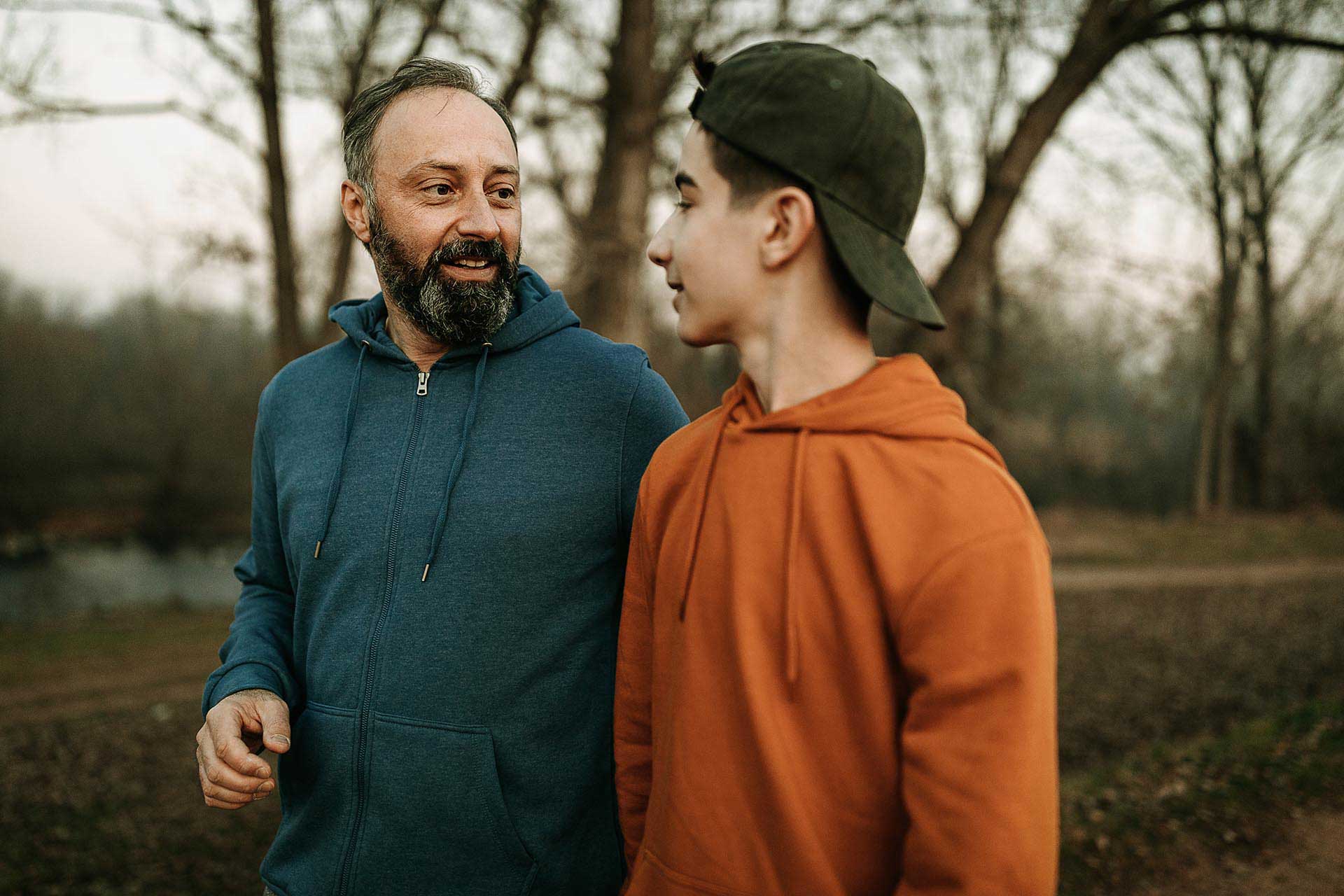How to cope with your child’s transition into a teenager
We talk a lot about how parents and carers can support their children. But once in a while, the parents and carers need a bit of love and focus too. It’s hard raising a child! One of the most difficult transitions as a parent is that of your child turning into a teenager. The once bubbly, can’t-get-enough-of-your-attention kid can suddenly turn into a sulky adolescent who rolls their eyes and doesn’t want to spend time with you. It hurts. But it’s also normal; they’re going through huge physical, cognitive and social changes, including a greater need to establish their identity outside of the family unit. So, what can parents and carers do to make this period of change easier on themselves?
Remember what they're going through
Remember being a teenager? Much of it was difficult, right? So many emotions, so much confusion. It’s an exciting, but also incredibly challenging time. It can help to ease parent and carers’ frustration or sadness at their behaviour to remember what it is that they’re going through. They might act like the sky is falling over something trivial, but in their world, it really feels like it is.
Less time talking, more time listening
As kids get older, our role should involve less talking at them and more listening to them. Taking the time to find out their thoughts, feelings and values takes the pressure off you and whatever message you’re trying to impart, as well as re-establishes your connection. They’re more likely to listen to you if make the effort to listen to them.
Don't take it personally
It might feel like a personal attack when they scoff at the idea of a family weekend trip – but it’s the hormones in their brain pulling the strings. Everything inside of their body is telling them to seek independence from their family and establish their own identity. It’s a painful, but necessary transformation – one that will help them to become an adult one day. It also doesn’t mean they love you or need you any less. It can be hard to ‘feel’ this, but it’s what we need to remind ourselves as parents.
Don’t fight it…
It can be tempting to dig in our heels to our child’s new developments, and to lay down many restrictions to their growing desire for freedom. But continually referring to them in infantilising ways and/or coming down hard as an authority figure won’t help the relationship. As they get older, your young person will change and they’ll need greater freedoms, hard as it may be sometimes, this needs to be accepted and granted. As they grow, our role should be less about imposing consequences and more about sustaining a supportive connection.
…But still be a good parent, not the ‘cool’ parent
The last point being said, our young people still need us to set healthy boundaries and limits around their behaviour. Giving into their every desire for greater freedom isn’t good for their growth; their frontal lobe still has many years of developing and as much as they think they can make their own decisions, sometimes it simply isn’t safe or healthy for them to do so. Maintaining boundaries also offers young people a sense of safety and stability in their fast-changing world.
Focus on quality rather than quantity of time
It hurts when our teen starts acting like spending time with us is a chore. But just because they want to spend more time with their friends, doesn’t mean they don’t still appreciate quality family time when it happens. Rather than trying to drag them along to every outing, plan some specific family events where you can connect over an activity that you’ll all enjoy
Separate your worries from theirs
We all have some unresolved traumas from childhood. Watching teens go through puberty can trigger some of our past issues – but it’s important to not let those feelings get tangled with those of our teens or how we feel about their development. We need to explore what anxieties come up on our own, without putting those anxieties onto our young people.
Practise self-care
What can you do to look after yourself in a tough time? For one thing, you don’t need to always engage until the end with your tween or teen. Walking away or taking time out from an argument, or simply not responding to bait, is always okay. But what other activities help you to feel recharged? An afternoon alone with a book? A once-a-month massage? An after-work walk? We know some parents won’t have much spare time or funds on their hands, but any small practices you can do to stay sane and recharge will benefit both you and your young person.
Ask for help
You’re not the only one who has been through this tough transition. Speak to friends, other family members or parent support groups about their experiences. Reach out to loved ones – even just for a vent. People who aren’t so close to your child will help provide a more objective outside perspective and advice. Books and videos (such as parenting YouTube channels: AMAZE has a good one) can also be helpful resources to guide you through this time.
Remember the upside
There are wonderful things about children growing up and becoming teenagers. For one thing, they become capable of having more thoughtful, interesting and reflective conversations. You begin to see the adult they will one day become. They can take on more responsibilities that are then taken off your hands, such as chores and homework. As they become more independent, you’re given more time to yourself once again. And one day, the teenage annoyances will pass and they’ll circle back to wanting to spend time with you.
We talk a lot about what’s good for young people and what they need. But what about the parents and carers? Looking after yourself and making time for the activities you enjoy will, in turn, help make you a better parent. What does self-care look like to you? On days when you’re particularly struggling with your child, what can you do to look after yourself and destress? Even if it’s just for half an hour. Taking time out is always okay.
Further reading
- Our fact sheet: ‘Let’s talk: puberty’
- Our fact sheet: ‘Let’s talk: 5 tips for talking’
- Our podcast episode: ‘Talking puberty with your teen or child’
- Our article: ‘Puberty myths your child needs debunked’
- Our article: ‘The DO’s and DON’Ts of the puberty talk’
- Legitimate Sexpectations: The Power of Sex-Ed, Katrina Marso
- The New Puberty, Amanda Dunn
- The Secret Lives of Teen Girls: What Your Mother Wouldn’t Talk About but Your Daughter Needs to Know, Evelyn Resh











